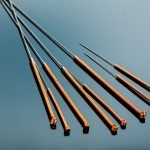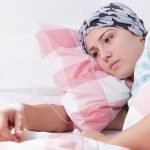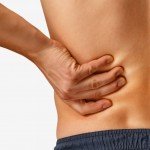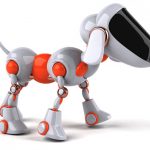Reversing Alzheimer’s in Mice Using Common Prescriptions
NODE SMITH, ND
Alzheimer’s disease is the most common cause of dementia in Western societies and it is estimated that 24 million people worldwide have this condition. ICREA researcher Dr. Patrick Aloy, head of the Structural Bioinformatics and Network Biology lab at IRB Barcelona, has headed a study that has managed to reverse the symptoms of Alzheimer’s disease in mice by administering drugs currently used to treat hypertension and inflammation in humans.
In this study, the scientists led by Dr. Aloy have characterized three stages of Alzheimer’s disease, namely initial, intermediate and advanced. For each of these stages, they have analyzed the behavior of the animals, studied the effects on the brain (specifically the hippocampus at the tissue level) and performed a molecular analysis to measure gene expression and protein levels.
The approach adopted has allowed them to describe the development of the disease at a level of detail hitherto unknown and also compare it with healthy ageing. “What we have observed is that, although Alzheimer’s disease shares some features of accelerated ageing, it is also affected by totally different ageing processes,” says Dr. Aloy. “This disease is caused by the abnormal accumulation of certain proteins, and we have seen that, in some cases, this is not caused by overproduction but by an error in their removal,” he adds.
Chemical Checker: detection of the most promising molecules
Having characterized the disease, the scientists used the Chemical Checker, a computational tool developed by the same research group to find drugs already on the market with the capacity to reverse the effects at the cellular level. This tool has allowed them to identify a series of possible candidates, which were tested in various mouse models of Alzheimer’s disease. Four drugs — two non-steroidal anti-inflammatories and two anti-hypertensives, proved effective at reversing the disease and neutralizing symptoms in these mice.
“Epidemiological studies already indicated that people who regularly take anti-inflammatories show a lower incidence of Alzheimer’s disease, but this had not been correlated with a specific medication or mechanism. The results that we are publishing are most promising, and we hope that further research can be done on them because they could give rise to a paradigm shift in the treatment of this disease,” says Dr. Aloy.
Early diagnosis of the disease
In addition to paving new avenues of research for the treatment of Alzheimer’s disease, the characterization of the distinct stages of this condition published in this study favors early diagnosis. Diagnosing Alzheimer’s disease at an early stage, when damage to the brain is still minimal, is one of the main research focuses to tackle this condition and to reduce symptoms.
This work has been done in collaboration with the RIKEN Center for Brain Science and the Institute of Brain Science, both in Japan, and the Biostatistics/Bioinformatics and also Proteomics core facility at IRB Barcelona. The study was funded by the European Research Council, the Spanish Ministry of Science and Innovation and the Government of Catalonia.
1. Eduardo Pauls, Sergi Bayod, Lídia Mateo, Víctor Alcalde, Teresa Juan-Blanco, Marta Sánchez-Soto, Takaomi C. Saido, Takashi Saito, Antoni Berrenguer-Llergo, Camille Stephan-Otto Attolini, Marina Gay, Eliandre de Oliveira, Miquel Duran-Frigola, Patrick Aloy. Identification and drug-induced reversion of molecular signatures of Alzheimer’s disease onset and progression in AppNL-G-F, AppNL-F, and 3xTg-AD mouse models. Genome Medicine, 2021; 13 (1) DOI: 10.1186/s13073-021-00983-y

Node Smith, ND is a naturopathic physician in Humboldt, Saskatchewan and associate editor and continuing education director for NDNR. His mission is serving relationships that support the process of transformation, and that ultimately lead to healthier people, businesses and communities. His primary therapeutic tools include counselling, homeopathy, diet and the use of cold water combined with exercise. Node considers health to be a reflection of the relationships a person or a business has with themselves, with God and with those around them. In order to cure disease and to heal, these relationships must be specifically considered. Node has worked intimately with many groups and organizations within the naturopathic profession, and helped found the non-profit, Association for Naturopathic Revitalization (ANR), which works to promote and facilitate experiential education in vitalism.










